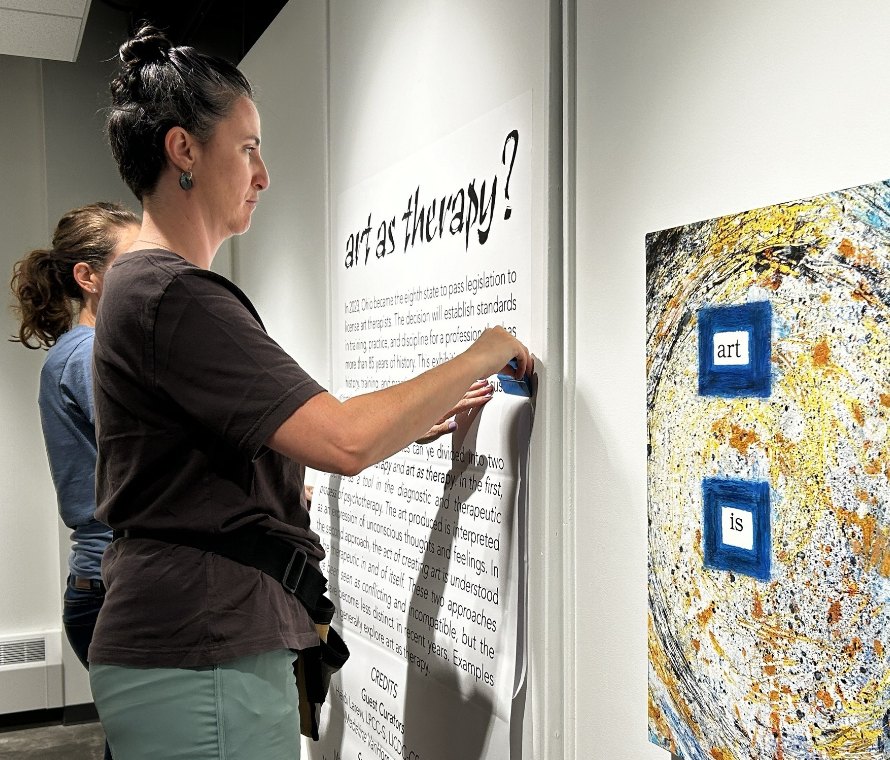Rachel Salyer
When a person envisions a teacher, nurse or secretary, they probably picture a female. Picture an engineer, architect or mathematician — is it a male?
Women like Renee Horn and Lauren Kukwa are looking to change that stereotype. They are part of the small, but growing minority of women engineers here at The University of Akron.
“The first time I realized that this was a male- dominated field was in my statics class,” said Horn, a biomedical engineering major. “I was one of five girls in a class of 30.”
Even though, according to Monster.com, students with engineering degrees are constantly in demand, females are still largely underrepresented in the field. At UA, of the 110 professors, directors and research assistants in the College of Engineering, only 17 are women.
Kukwa, a chemical engineering major, said that she was discouraged about entering engineering due to the lack of women in the field.
“I knew what everyone would be thinking — what business does a Disney-watching, pink-and-glitter-loving girly-girl have trying to study with the boys?” she said.
This mentality is cultivated throughout grade school years. A study by the National Science Foundation showed that more than one third of the high school career counselors said that they “strongly agreed” or “agreed” that boys were more encouraged to go into engineering. More than half the counselors also agreed that a lack of female engineering role models is another factor.
The lack of encouragement for females in high school translates into the job force. According to the National Science Foundation, only 13 percent of engineers are women.
Margaret F. Donovan, the chair for the first scholarship in the U.S. specifically designed to promote leadership positions for women in engineering, thinks that institutions of higher education need to be more active in encouraging women to enter the profession.
“Women have come a long way in such areas as business, law and many science disciplines, but not as much progress has been made in the male bastion that is engineering,” said Donovan. “More women need to enter this field, and it’s not enough to have women who are ‘examples.’ We need more leaders in our colleges and universities who will actively work to bring both younger and older women into this profession.”
While many universities are starting initiatives to bring more women into science, technology and mathematics, not everyone is doing their part to make them feel welcome, Kukwa said. She said she “absolutely” gets treated differently because of her gender, both in class and at her current engineering job with ABB Inc.
“Some professors ignore you, and some older men at work think you’re a joke,” she said. “I was even denied a job because my interviewer told me I seemed ‘too delicate’ for the kind of work they
were doing.”
While Horn has faced her share of adversity among her male counterparts, she doesn’t let it faze her.
“It feels good to be proving people wrong and destroying the old stereotypes,” she said. “I work hard. I’ve earned my spot, and I feel like people are starting to take notice and give women like me the chance to show what we know and judge us on our work ethic and attitude.”
While women like Kukwa and Horn are outnumbered by their male counterparts, they do say that there are advantages of being a minority within their field.
“There are a lot of scholarship opportunities available specifically for women, so that’s a plus,” said Horn. “And most companies are looking to promote workforce diversity, and women are the perfect people to help with that. If a company is willing to give me that first chance because I’m in the minority, then that’s fine, but then I’m going to prove I deserve to be there just as much as any man.”
Kukwa agrees.
“It’s fun keeping up with the boys,” she said. “And it’s even more fun doing it in heels.”





